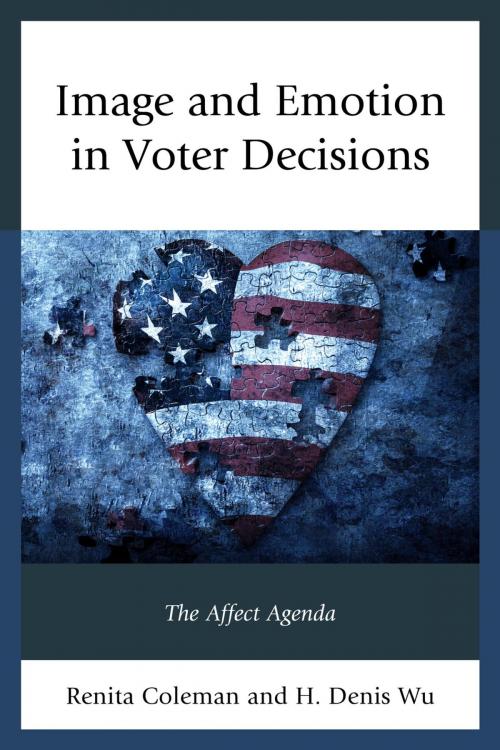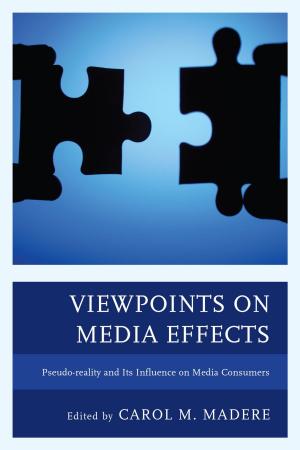Image and Emotion in Voter Decisions
The Affect Agenda
Nonfiction, Reference & Language, Language Arts, Public Speaking, Communication, Social & Cultural Studies, Political Science, Government, Elections| Author: | Renita Coleman, Denis Wu | ISBN: | 9780739189962 |
| Publisher: | Lexington Books | Publication: | March 25, 2015 |
| Imprint: | Lexington Books | Language: | English |
| Author: | Renita Coleman, Denis Wu |
| ISBN: | 9780739189962 |
| Publisher: | Lexington Books |
| Publication: | March 25, 2015 |
| Imprint: | Lexington Books |
| Language: | English |
Drawing on a decade of their own research from the 2000 to 2012 U.S. presidential elections, Renita Coleman and Denis Wu explore the image presentation of political candidates and its influence at both aggregate and individual levels. When facing complex political decisions, voters often rely on gut feelings and first impressions but then endeavor to come up with a “rational” reason to justify their actions. Image and Emotion in Voter Decisions: The Affect Agenda examines how and why voters make the decisions they do by examining the influence of the media’s coverage of politicians’ images. Topics include the role of visual and verbal cues in communicating affective information, the influence of demographics on affective agenda setting, whether positive or negative tone is more powerful, and the role of emotion in second-level agenda setting. Image and Emotion in Voter Decisions will challenge readers to think critically about political information processing and a new way of systematically thinking about agenda setting in elections.
Drawing on a decade of their own research from the 2000 to 2012 U.S. presidential elections, Renita Coleman and Denis Wu explore the image presentation of political candidates and its influence at both aggregate and individual levels. When facing complex political decisions, voters often rely on gut feelings and first impressions but then endeavor to come up with a “rational” reason to justify their actions. Image and Emotion in Voter Decisions: The Affect Agenda examines how and why voters make the decisions they do by examining the influence of the media’s coverage of politicians’ images. Topics include the role of visual and verbal cues in communicating affective information, the influence of demographics on affective agenda setting, whether positive or negative tone is more powerful, and the role of emotion in second-level agenda setting. Image and Emotion in Voter Decisions will challenge readers to think critically about political information processing and a new way of systematically thinking about agenda setting in elections.















